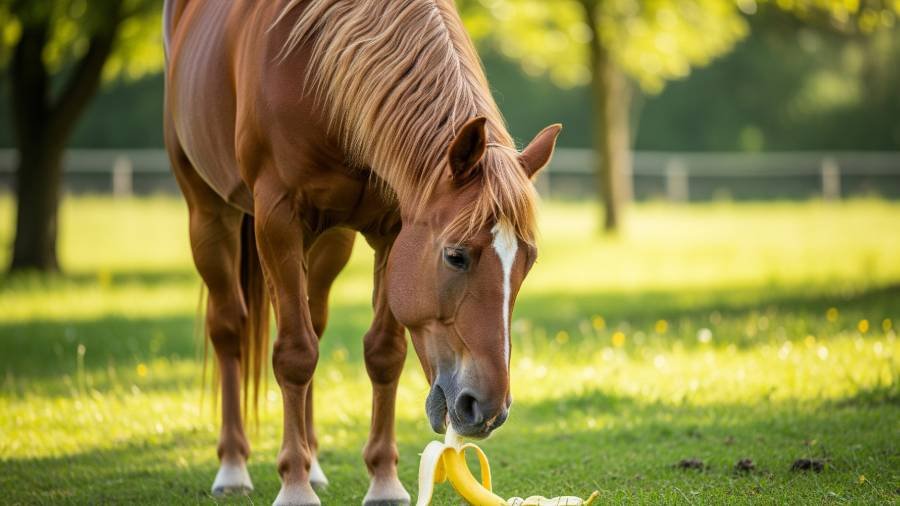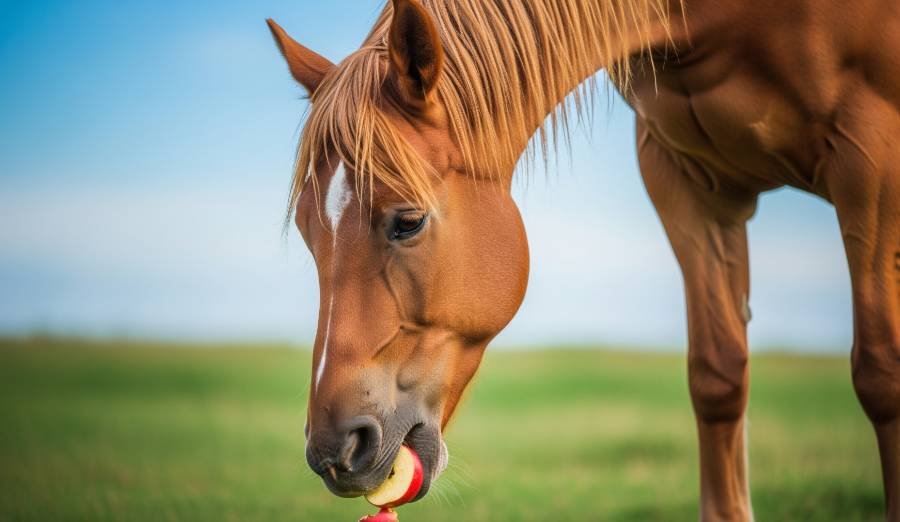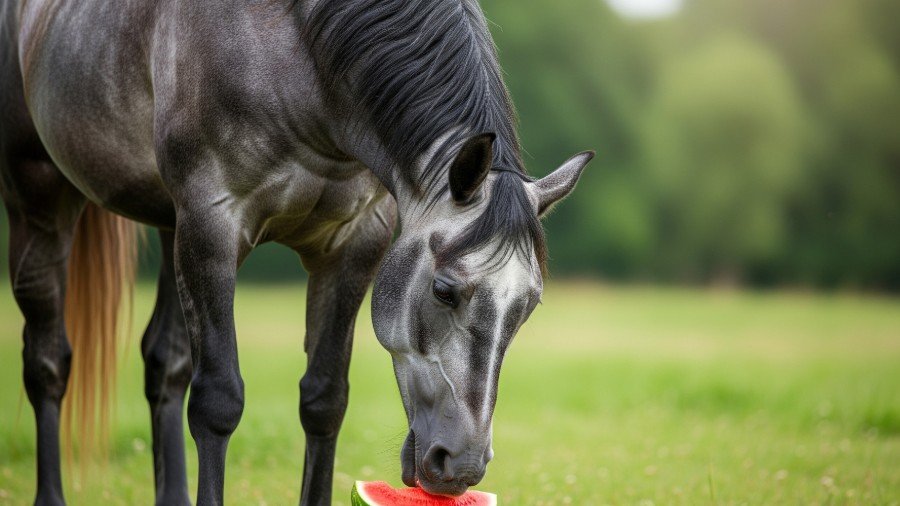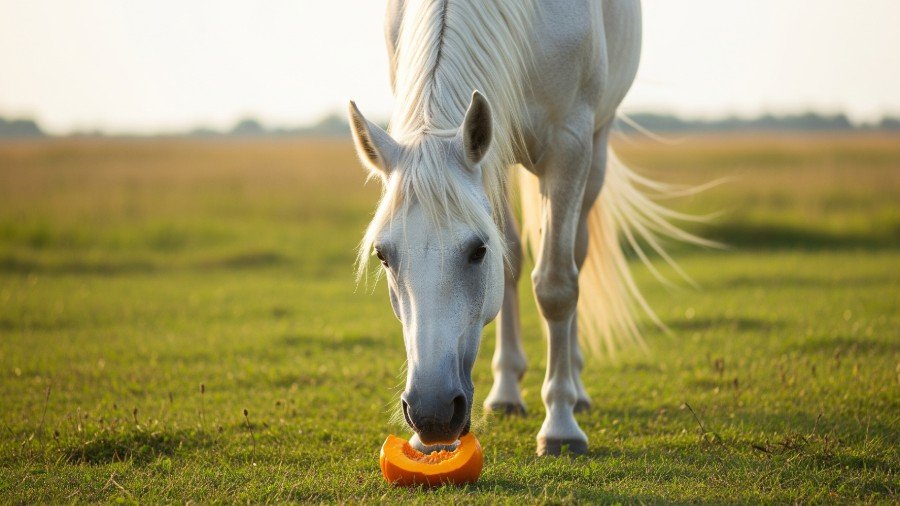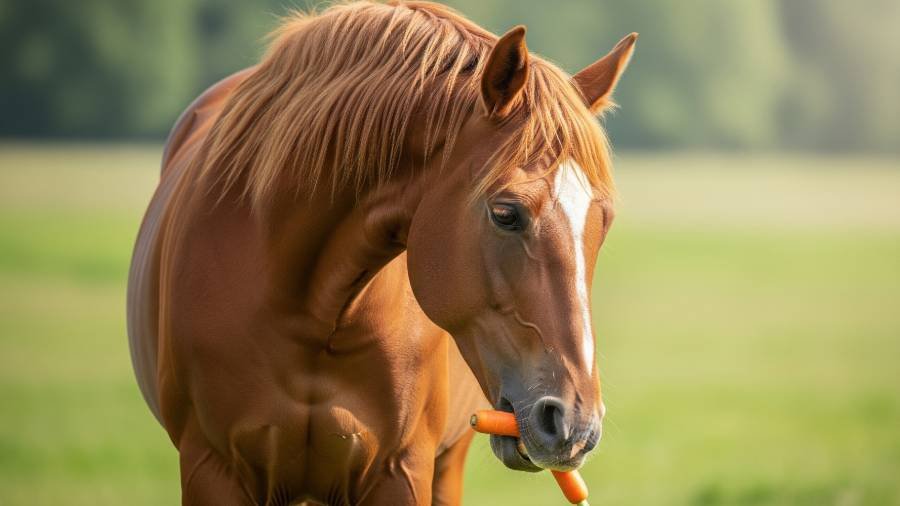The short answer is yes, horses can eat grapes as a safe and delightful treat for horses when offered in small amounts, appealing to a horse’s love for sweet taste.
As part of a balanced diet, grapes add variety to a horse’s diet, but they should only supplement their primary forage and grain intake.
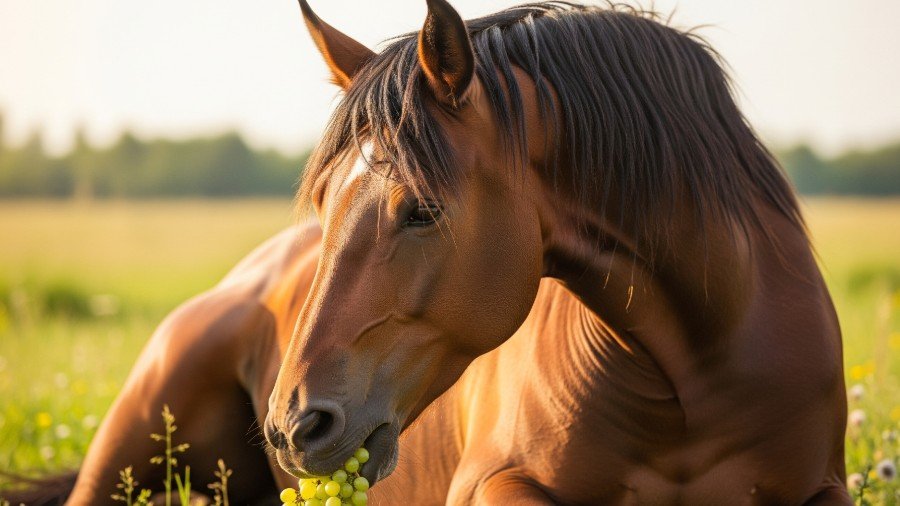
Potential Benefits of Grapes for Horses
When horses can eat grapes in moderation, they offer several advantages that make them enjoyable for horses:
- Natural Sugar: The sweet taste provides a quick energy boost, which a horse enjoys after exercise.
- Vitamins and Antioxidants: Grapes contain vitamin C and antioxidants, supporting the immune system.
- Hydration: With high water content, they help keep horses hydrated on warm days.
- Palatability: Many horses love the burst of flavor, making grapes a popular treat.
- Low Fiber: Though minimal, the small fiber content aids gentle digestion.
These benefits shine when feeding your horse grapes in controlled portions. For more on safe fruits, explore can horses eat apples.
Risks and Dangers of Grapes for Horses
While grapes are safe for horses, some risks should be considered:
- Choking Hazard: Whole grapes can pose a risk if a horse swallows without chewing, especially in large amounts.
- Sugar Content: High natural sugar can cause digestive upset or issues in insulin-resistant horses.
- Overfeeding: Eating grapes in excess may lead to weight gain or exacerbate metabolic disorders.
- Pesticide Residue: Non-organic grapes may carry chemicals, requiring thorough washing to reduce the risk.
- Allergic Reactions: Though rare, some horses might show mild irritation from grapes.
- Nutritional Imbalance: Relying on grapes can lack essential nutrients from a balanced diet.
How to Safely Feed Grapes to Horses
To ensure grapes are a safe treat, follow these guidelines:
- Wash Thoroughly: Rinse grapes under water to remove pesticides, even if organic, before feeding your horse.
- Cut if Needed: Halve or crush grapes to avoid choking hazard, especially for younger or older horses.
- Feed in Small Amounts: Offer a handful (e.g., 5-10 grapes) once or twice a week, keeping treats under 10% of a horse’s daily intake.
- Avoid Additives: Serve plain grapes without sugar coatings or spices, which can harm a horse’s digestive system.
- Monitor Reactions: Introduce grapes gradually and watch for colic, diarrhea, or allergies over 24–48 hours. Consult a vet if issues arise.
- Consult a Vet: Seek veterinary advice before feeding grapes, especially for insulin-resistant horses or those with dental issues.
Signs of Grape-Related Issues
If a horse eats grapes excessively or reacts poorly, look for:
- Colic, diarrhea, or reduced appetite
- Excessive gas or bloating from digestive upset
- Lethargy or unusual behavior
- Difficulty swallowing or choking (from whole grapes)
- Skin irritation (rare allergic signs)
If these signs appear, stop feeding grapes and contact a veterinarian immediately. Severe digestive issues require urgent care.
Expert Opinions
Veterinary sources, such as the Equine Science Society, confirm that horses can eat grapes safely in moderation, noting their vitamin content and palatability. Experts recommend cutting grapes to prevent choking and limiting intake due to sugar content. For more on safe produce, check can horses eat carrots or can horses eat bananas.
Additional Considerations
- Health Conditions: Horses with insulin resistance or laminitis should avoid grapes due to sugar. Consult a vet first.
- Young Horses: Foals may need smaller, softer pieces, as advised by a vet.
- Horse Preferences: Some horses enjoy the sweet taste, while others may not. If uninterested, try alternatives like those in can horses eat strawberries.
- Organic vs. Non-Organic: Organic grapes may reduce pesticide risk, but all should be washed.
- Seasonal Treat: Grapes are a refreshing summer treat, complementing regular hydration.
Safe Treat Alternatives
Instead of grapes, consider these safe-for-horses treats, tailored to enhance a horse’s diet and offering internal linking opportunities:
- Apples: Small, cored apple slices provide vitamins. Learn more in our guide on can horses eat apples.
- Carrots: Sliced carrots offer crunch and nutrients. Check our guide on can horses eat carrots.
- Watermelon: Seedless chunks hydrate and delight. Explore our article on can horses eat watermelon.
- Celery: Thin celery sticks offer low-calorie variety. See our guide on can horses eat celery.
Introduce new treats gradually, monitor for reactions, and consult a vet if unsure about safety.
Horses can eat grapes as a safe, tasty treat for horses, offering benefits like antioxidants and hydration when fed in small amounts.
However, risks such as choking hazard, sugar content, or pesticide exposure require cutting grapes and portion control. Horses with health issues like insulin resistance or young ones should avoid grapes unless approved by a vet, and a balanced diet should remain the focus.
Always consult a veterinarian before introducing grapes or other fruits. For more on equine nutrition, explore can horses eat pears, can horses eat blueberries, or what do horses eat.
For additional questions about what horses can eat or nutrition, feel free to ask!
